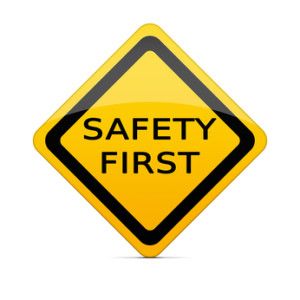Home Safety Tips for Alzheimer’s Patients
Caring for an aging adult with Alzheimer's or dementia can be challenging. Learn how to adapt the home environment and make safety changes to ensure independence and peace of mind for both the patient and caregiver. From installing safety locks to using a GPS system for wanderers.

Caring for a loved one with Alzheimer's disease or dementia presents unique challenges, particularly when it comes to home safety. Providing a safe environment for the aging adult with Alzheimer's is crucial for both their well-being and the peace of mind of caregivers. It's important to understand that individuals with Alzheimer's require the same level of care as anyone with a progressive, debilitating illness. As their condition deteriorates, their need for assistance and tailored care increases.
People with Alzheimer's gradually experience cognitive decline, leading to dementia and behavioral changes reminiscent of caring for a small child. They may exhibit behaviors such as wandering, hoarding, rummaging through belongings, and mood swings. However, it's possible to create a safe home environment that maintains a level of independence for your loved one while ensuring the safety of all occupants.
Home safety and Alzheimer's disease some suggestions
Essential Home Safety Measures for Alzheimer's Patients
In addition to basic home modifications, it's crucial to address potential dangers that Alzheimer's or dementia patients may not recognize:
- Bathroom Safety: Install safety locks on cabinets containing medicines, household cleaning agents, razors, and other hazardous items. Consider moving these items to a padlocked toolbox or another secure location.
- Kitchen Safety: Employ safety locks on drawers or cabinets containing matches, liquor, knives, household cleaning agents, scissors, and other potentially dangerous items. Install safety knobs on the stove or use a timer to restrict stove operation during specific hours.
- Doors: Remove locks from bathroom and bedroom doors, as seniors with Alzheimer's may lock doors and then struggle to unlock them. Ensure doors leading outside have additional locks placed high on the door to deter wandering.
- Home Lighting: Decorate with solid colors when possible, as patterns may confuse someone with Alzheimer's. Keep the home well-lit at night to prevent disorientation.
- Wandering Prevention: Consider using a GPS system to track potential wanderers and receive instant alerts if they leave the area. Place solid black mats in front of doors leading outside, as they may appear as deep holes to Alzheimer's patients, deterring them from exiting. Track your loved ones with hidden GPS SmartSole for shoes. Shop GPS SmartSole
- Outdoor Safety: Inspect the surroundings for potentially hazardous items like saws, lighter fluid, power tools, and paint. Store these items in a locked garage or tool shed.
Home Adaptations For Dementia and Home Safety
Additional Home Safety Considerations
Beyond home adaptations, consider these safety measures when caring for seniors with Alzheimer's or dementia:
- Smoking: Remove ashtrays, matches, and smoking-related items as individuals with dementia may reach a point where they can't smoke safely. Consider using a non-flammable apron when they do smoke to prevent burns.
- Choking Hazards: Remove poisonous plants and small objects that could cause choking from their reach, as some dementia patients may put items in their mouths.
- Identification: Ensure your loved one wears ID bracelets or necklaces with medical information and a contact number, especially if you don't have a GPS or medical alert system in place. This helps identify the individual and contact family in case of wandering.
- Engagement and Adult Day Care: Encourage seniors to stay engaged in activities they enjoy for as long as possible. Alzheimer's progression varies, so caregivers should regularly assess their abilities and safety. Consider adult day care to provide socialization and relief for caregivers, reducing stress and supporting their well-being.
Caring for a loved one with Alzheimer's or dementia requires constant vigilance, and it can be exhausting. Taking steps to ensure home safety and considering respite care options can help caregivers provide the best care while maintaining their own well-being.
You might also like this article:


